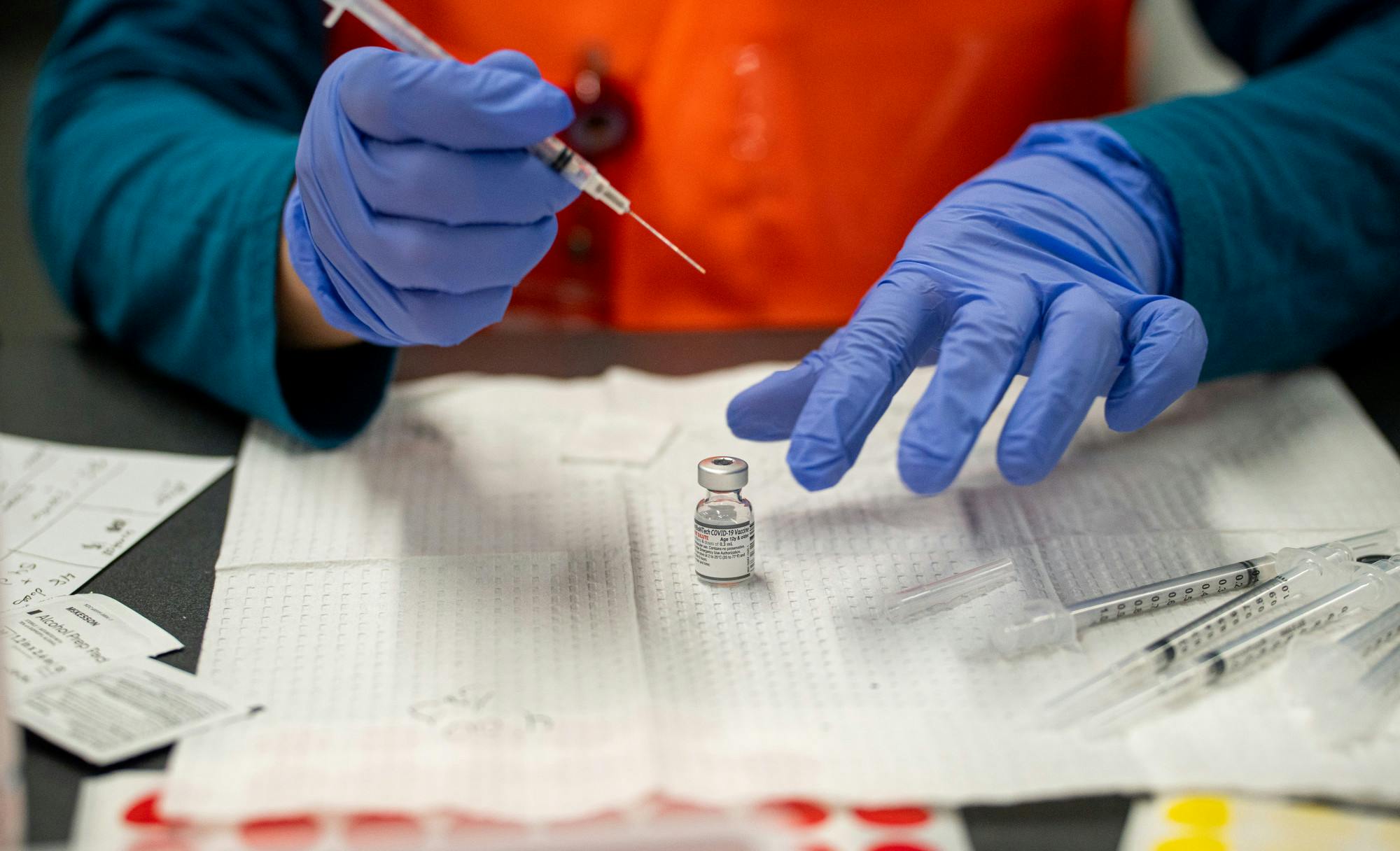After Michigan State University lifted its COVID-19 vaccine mandate, members of the Graduate Employees Union, or GEU, and the Union of Non-Tenure Track Faculty, or UNTF, responded, stating the decision was made without the knowledge or consulting of faculty and teaching assistants.
“At a time when we are all still grieving, the university is actively making campus less safe for the immunocompromised members of the campus community,” GEU and UNTF wrote in a statement.
GEU president Ava Hill said the tragic event that unfolded on Feb. 13 in combination with lifting the vaccine mandate did not make campus safer.
“Coming on the wake of the tragedy we all just lived through that just happened on campus a few weeks ago, to do this now, and say we are gonna make campus less safe in the wake of that for some people is just callus,” Hill said.
Hill said the vaccine mandate should not have been lifted at all, saying other vaccines are mandated and required by the university for students, staff and faculty.
MSU does have a policy requiring undergraduate students to submit an immunization form and strongly recommends other vaccinations, but does not require that students are vaccinated.
“We don’t think that the mandate should have ever been repealed in the first place,” Hill said. “COVID-19 is one of the most infectious diseases in human history and we are not going to require the vaccine for that? I mean it’s very clear that this isn’t a scientifically based decision.”
Victor Rodriguez-Pereira, assistant professor and UNTF vice president, said the methods and procedures protecting students, faculty and staff from COVID-19 should still be accessible.
“I do think the university can do a lot by just keeping some kind of system to trace (the disease) and keep taking precautions,” Rodriguez-Pereira said. “Allowing us flexibility to use Zoom as part of our teaching, and similar things will go a long way, helping us with the least amount of disruptions possible.”
PhD student Hazel Anderson said MSU needs to recognize and be inclusive of students, faculty and staff needing extra precaution and change after this decision.
“If we are really trying to be better in those areas, we need to think about disabled, immunocompromised, high-rise individuals, and how we’re being inclusive in that aspect,” Anderson said. “These decisions are going to exclude certain people from coming to the university or getting less of an educational experience because they have to protect themselves.”







